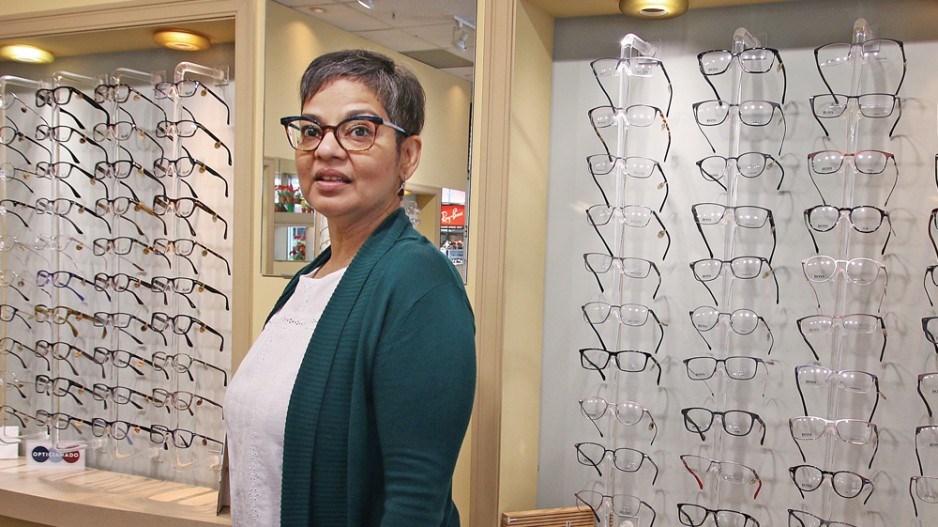Vandals have broken windows at Azra Kamrudin and Anar Mawji’s Abasa Optical store four times since early 2020.
That is more than in any comparable time in the 32 years since the sisters founded their eyewear boutique.
One incident caused about $10,000 worth of damage, as thieves broke into the store and stole merchandise while breaking eyewear frames.
The sisters paid a $1,500 deductible and claimed that damage on their insurance. They financed the other more minor incidents out of their own pocket because the insurance company stopped covering them, Kamrudin told BIV.
“We take our frames down from the showcase every night before we close up,” she said. “We haven’t had a break-in since we started doing that.”
The women also installed movable metal caging that they wrap around display cases.
Lawlessness on the streets is only one of many challenges that the women face. Homeless people sometimes camp outside the store or next to their door, which deters potential customers.
The women sometimes ask their building’s manager to urge the street dwellers to move along.
“Sometimes we have asked them ourselves, but we stopped doing that because we’ve had a couple of aggressive people,” she said.
Sometimes Abasa Optical staff have to wash away urine from the store’s exterior.
Suppliers have raised prices for designer eyewear frames and for the lenses that Abasa Optical staff then custom-cut on site.
“Our business is quite competitive, and the prices have gone up, but we dare not raise ours,” Kamrudin said. “You raise prices a few dollars and you could lose that customer.”
There have been some glitches getting supplies because of supply-chain outages, she added.
The women do not sell their eyewear online, and instead aim to be known as a boutique that has some frame brands that are not widely available, such as Theo and Face a Face.
One challenge in not selling eyewear online is that the women have to play by a different set of rules, which can put them at a disadvantage, Kamrudin said.
Online competitors allow customers to plug in whatever prescription details they want. Online sites also offer online eye exams, and online ways for customers to determine the distance between their pupils.
“If somebody comes into the store without a prescription, and says verbally, ‘I need a minus 250, minus 250’ – exactly the same as what they would do online – I couldn’t sell them the contacts or glasses,” she said.
“Legally, I can’t. I have to have the person produce a prescription and then I must take all the measurements of the customer's cornea. I have all these rules that I must abide by, according to the College of Opticians of British Columbia.”
She said the situation has “hamstrung” the business and is comparable to someone being able to self-authorize controlled painkillers if they buy them online, but needing a prescription if they want to get them from a pharmacy.
“A contact lens is a medical device,” she said. •




